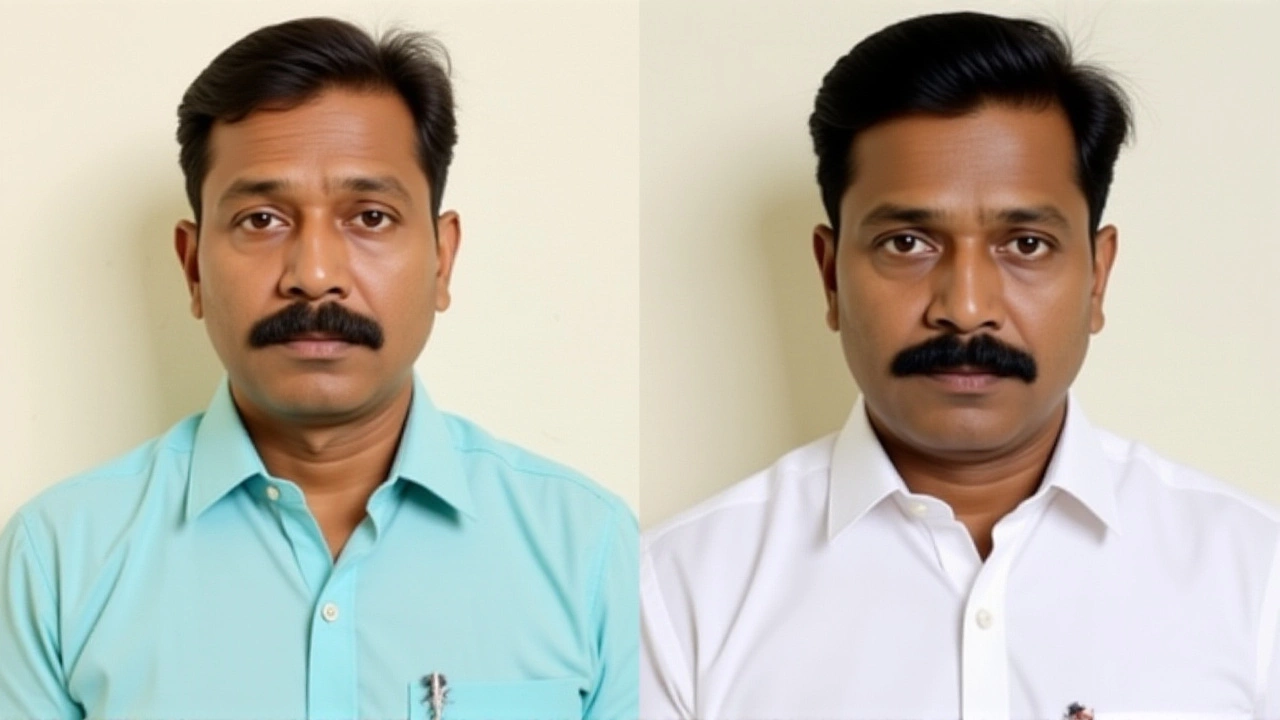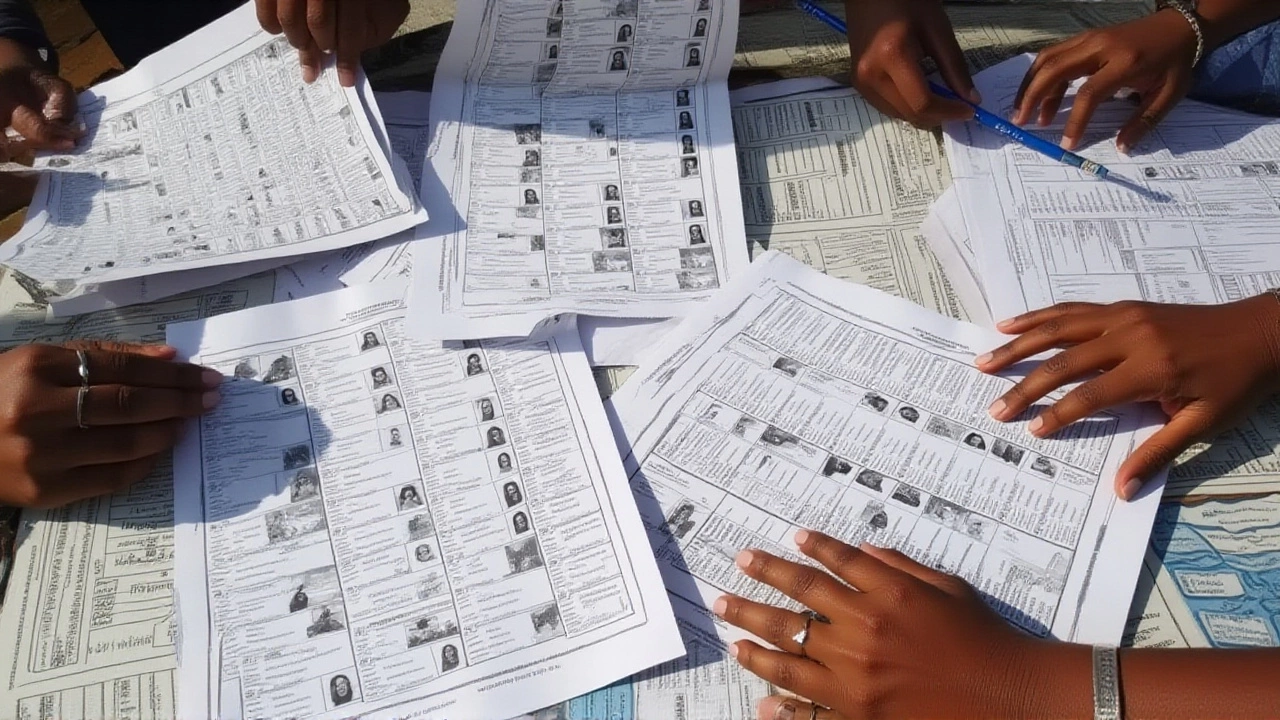
On Tuesday, July 15, 2025, the Nitish Kumar-led Bihar cabinet approved a one-time payment of ₹6,000 to 77,895 Booth Level Officers and 8,245 BLO supervisors for conducting the Special Intensive Revision (SIR) of the voter list across all 243 assembly constituencies. The move, announced during a high-stakes cabinet meeting, comes just over a year before the Bihar Legislative Assembly elections scheduled for 2025. It’s not just about updating names on paper — it’s about ensuring every vote counts in what could be the most tightly contested poll in the state’s modern history.
Why the Voter List Matters More Than Ever
The Special Intensive Revision (SIR) of the voter list is a routine but critical task mandated by the Election Commission of India. But this time, the stakes are higher. With the National Democratic Alliance (NDA) — led by Nitish Kumar’s Janata Dal (United) and the Bharatiya Janata Party (BJP) — facing off against the Mahagathbandhan alliance under Tejasvi Yadav’s Rashtriya Janata Dal (RJD), every voter’s inclusion or exclusion could tip the balance. Historically, SIR exercises in Bihar have removed 5–7% of names due to duplicates, deaths, or migration. This year, with over 64,000 polling stations involved, the scale is unprecedented.
Booth Level Officers, often local volunteers or retired government staff, are the boots on the ground. They knock on doors, verify IDs, cross-check Aadhaar details, and flag suspicious registrations. Their work is tedious, often underappreciated — and now, finally, compensated. The ₹6,000 honorarium, while modest, is a symbolic recognition of their role in safeguarding electoral integrity. Many BLOs work without transport reimbursement or even lunch breaks. One BLO from Gaya told reporters, “We’ve done this for free for years. Now, at least, we can buy medicine for our mothers with this money.”
BJP’s Strategic Move: Honoring BLOs on November 29, 2025
But here’s the twist: while the state government paid for the labor, the BJP is planning its own show of gratitude. On November 29, 2025 — exactly one year before the expected election date — the party will host a grand ceremony honoring BLOs from all 243 constituencies. Bihar BJP President Sanjay Jaiswal called it the “BLA One” initiative, a nod to their role as the party’s first point of contact in every booth. It’s not charity. It’s coalition-building. By publicly thanking these workers, the BJP is embedding itself into the grassroots fabric of Bihar’s electoral machinery — and making sure those same workers feel loyal to their cause.
Political analysts see this as a masterstroke. “The BJP knows that in Bihar, elections are won at the booth level,” says Dr. Anil Kumar, a political scientist at Patna University. “They’re not just rewarding service. They’re creating a network of influencers who’ll carry their message door-to-door — even if they’re officially non-partisan.”

The Employment Promise: Big Words, Bigger Questions
During the same cabinet meeting, the government announced its ambitious plan to create one crore new jobs over five years through the Bihar Industrial Investment Promotion Policy (BIIPP-2025). The policy offers free land — up to 10 acres — to companies investing ₹100 crore or more. Fortune 500 firms get 10 acres for just ₹1. It sounds revolutionary. But critics are skeptical.
“We’ve heard this before,” says Rajesh Singh, a former state planning officer. “Land is cheap here. But where are the factories? The power? The skilled workforce? You can’t hand out land and expect industries to magically appear.”
YouTube videos from ABP News, circulating just weeks before the announcement, captured raw frustration from Bihar’s youth. “We graduate from engineering colleges,” said one student from Muzaffarpur, “and then we take trains to Bengaluru or Delhi just to find a job.” The NDA’s manifesto, called the ‘Sankalp Patra,’ promises to turn Bihar into a ‘global skill center’ and create a million ‘Lakhpati Didis.’ But so far, no concrete data shows where these mega-skill centers will be built, or how many jobs have actually materialized under previous schemes.
What’s Really at Stake?
This isn’t just about voter rolls or job promises. It’s about trust. When voters see BLOs being paid — and then publicly honored by a party — they start asking: Who’s really looking out for them? The state? Or the party?
For the first time, the SIR process is being run in parallel with a massive political campaign. The BLOs, many of whom are women or retired teachers, are now caught between civic duty and partisan optics. The Election Commission insists they remain neutral. But can they, when one party is throwing them a public celebration and the other is just writing a check?
Meanwhile, the BIIPP-2025 policy expires on March 31, 2026. That’s less than a year after the elections. If no major industries have moved in by then, the job promises will look like empty slogans. And if the voter list is cleaned up just before the polls — but the economy doesn’t change — voters may not reward the incumbents with their ballots.

What Happens Next?
The SIR process begins in August 2025 and runs through October. BLOs will submit their verified data to district election offices, which will then publish draft rolls for public scrutiny. Objections can be filed until November. Final rolls are expected by December 15, 2025 — just weeks before voting begins.
What’s unclear is whether the ₹6,000 honorarium will be repeated in future elections. And whether the BJP’s November ceremony will become a permanent tradition — or just a one-time political stunt.
One thing’s certain: Bihar’s 2025 elections won’t be decided in rallies or TV ads. They’ll be decided in the quiet of homes, by the hands of ordinary people who knock on doors, check IDs, and decide who gets to vote — and who doesn’t.
Frequently Asked Questions
Why is the Special Intensive Revision (SIR) being done now?
The SIR is mandated by the Election Commission of India before every major election to ensure voter rolls are accurate and free of duplicates or fraudulent entries. With the Bihar Assembly elections due in 2025, and political tensions high between NDA and Mahagathbandhan, updating the list is critical to prevent electoral malpractice and ensure fair representation.
How many voters could be affected by this revision?
Previous SIR exercises in Bihar removed 5–7% of names from electoral rolls — roughly 3–4 million voters. With Bihar’s current electorate of over 70 million, this round could see similar deletions, especially among migrants, deceased individuals, and those registered at multiple addresses.
Is the ₹6,000 honorarium enough for BLOs?
While ₹6,000 is a symbolic step, many BLOs spend over 60 days door-to-door, often without transport or meal support. In urban areas, that’s barely a week’s wages. Critics argue it’s a political gesture rather than fair compensation — especially when compared to the ₹20,000+ paid to polling staff in some other states.
Can the BJP’s BLO honor ceremony influence voters?
Yes. BLOs are trusted figures in their neighborhoods. When the BJP publicly celebrates them, it signals loyalty and recognition — which can subtly shift voter perception. In rural Bihar, where personal relationships matter more than party manifestos, this kind of visibility can translate into votes.
Will the one crore job promise actually materialize?
So far, Bihar has attracted minimal industrial investment under similar schemes. The BIIPP-2025 offers land incentives, but lacks guarantees for infrastructure, power, or skill training. Without concrete industrial clusters or IT parks, the promise risks becoming political rhetoric — especially since the policy expires just months after the elections.
What’s the timeline for the 2025 Bihar elections?
The elections are constitutionally due by October 2025, but historically held in October–November. Key dates: SIR begins August 2025, draft rolls published October 2025, final rolls by December 15, 2025, and voting expected between October 15–November 10, 2025.
 Entertainment and Film Industry
Entertainment and Film Industry